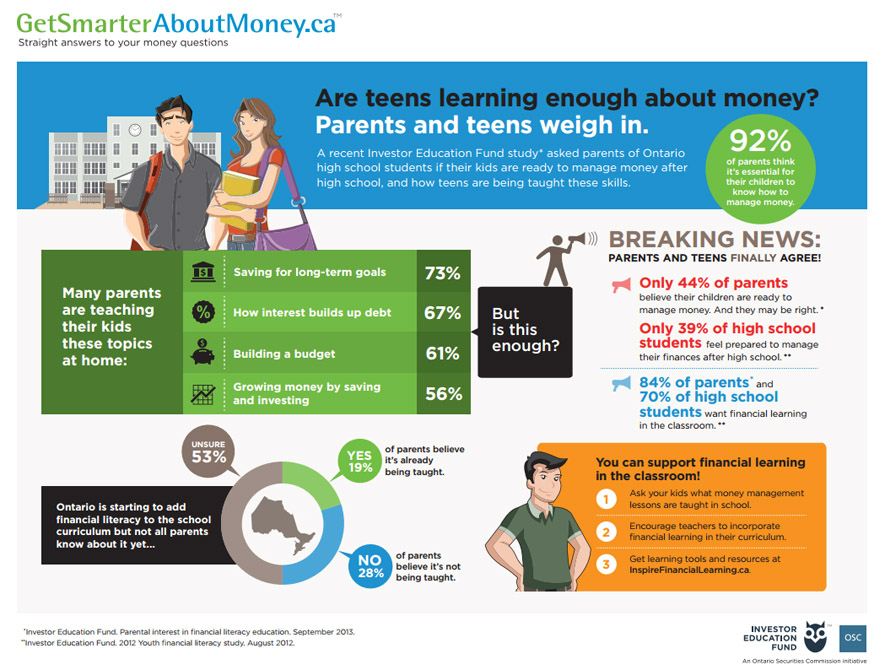Parents and teens want financial education in the classroom
39% of Ontario high school students feel ill-equipped when it comes to money
Advertisement
39% of Ontario high school students feel ill-equipped when it comes to money
 IEF launched three new resources for parents, teachers and students on the heels Thursday’s report. The Mind Over Money Educator Academy offers free personal and professional development workshops for Ontario educators. InspireFinancialLearning.ca provides free curriculum-based Mind Over Money lesson plans, videos and activities for teachers and parents to support financial education in schools and at home. The Mind Over Money Student Video Contest invites students to submit their video answers, individually or collectively with classmates, to the question: “What should every student know about money?” The contest will run until Jan. 31, 2014. The winner of each grade group will receive a $250 gift certificate to use towards school supplies.
IEF is a non-profit organization founded and supported by the Ontario Securities Commission to provide unbiased and independent financial tools.
IEF launched three new resources for parents, teachers and students on the heels Thursday’s report. The Mind Over Money Educator Academy offers free personal and professional development workshops for Ontario educators. InspireFinancialLearning.ca provides free curriculum-based Mind Over Money lesson plans, videos and activities for teachers and parents to support financial education in schools and at home. The Mind Over Money Student Video Contest invites students to submit their video answers, individually or collectively with classmates, to the question: “What should every student know about money?” The contest will run until Jan. 31, 2014. The winner of each grade group will receive a $250 gift certificate to use towards school supplies.
IEF is a non-profit organization founded and supported by the Ontario Securities Commission to provide unbiased and independent financial tools.
Share this article Share on Facebook Share on Twitter Share on Linkedin Share on Reddit Share on Email